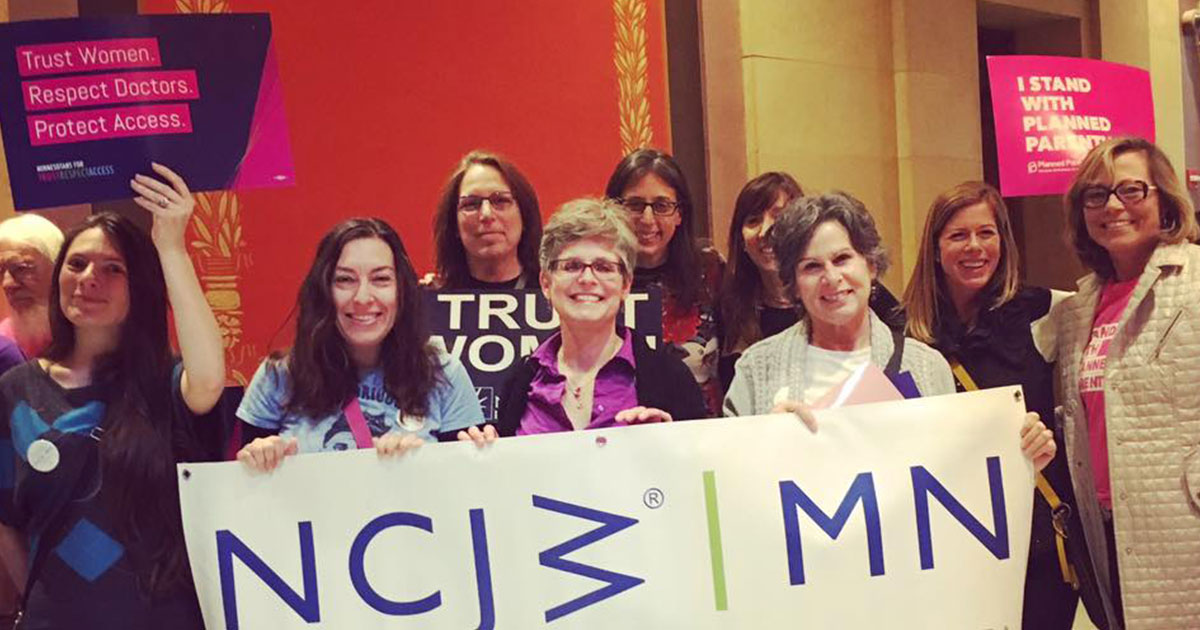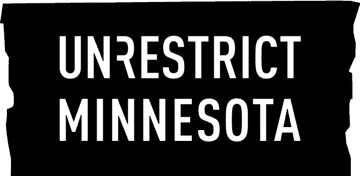Having the Constitution to Choose

We applaud the Supreme Court’s decision in June Medical v. Russo, striking down the Louisiana law regulating abortion clinics and upholding the protections afforded by Roe v. Wade. However, that egregious law represents just one of the nearly 450 state laws restricting access to reproductive health care — including nine laws here in Minnesota — requiring a medically unnecessary doctor’s appointment and 24-hour waiting period; mandating physicians provide medically irrelevant information; requiring minors to notify both parents, regardless of relationship; and mandating that detailed, private patient information is reported to the state. And just before the Supreme Court ruling, Tennessee passed a law that would prohibit abortion before many people even know that they are pregnant. These laws erode the personal protections and rights afforded by the Constitution. They limit the power, faculty and capacity that the right to choose should grant to each of us.
We should be preparing to celebrate the 50th anniversary of Roe v. Wade in the next few years. Instead, we are scared. And we are frustrated and distressed, for the power to choose is embedded in our biblical tradition.
”So they called Rebekah and asked her, ‘Will you go with this man?’ ‘I will go,’ she said.”
This is the first time in the Hebrew Bible we have an explicit moment of a woman’s prerogative. Rebekah is not forced to marry Abraham’s son Isaac. She is given the choice. Choice is a terribly loaded word. If a person has the power to choose, it suggests just that: power, faculty, capacity.
Though there have been and are indeed aspects of Jewish teachings that have sought to relegate women and non-binary people to second-class status, all people should be treated equally. Full stop. And Jewish tradition supports that at its core.
When Leviticus 19:18 compels us to “love your neighbor as yourself,” it is a subtle directive to love yourself, and view your neighbor as if they are you — literally. Even though your neighbor may be different, they are you — we are one and the same. This is irrespective of race, religion, gender, class. We are all and each created in the image of God. Created in God’s image yields a sense of personal autonomy and communal equality.
In 1973, Roe v. Wade invoked the 14th Amendment, effectively affirming this position — that is, the Constitution of the United States protects a pregnant person’s liberty to choose to have an abortion without excessive government restriction. The Supreme Court invoked a fundamental “right to privacy” being violated when one’s liberty to choose is taken away. Why? People who become pregnant are no longer protected as equal to those who cannot; the government declares what they can and cannot do with their bodies; and their intimate decisions are made public.
There is a First Amendment case to be made as well. Different religions believe that human life begins at different stages of development. Science can explain developmental timelines, but philosophic and religious viewpoints largely determine what exactly defines “life” or “personhood” for each individual.
All Jewish denominations agree that a child’s life does not begin at conception under Jewish law. The Babylonian Talmud (Yevamot 69b) asserts that the fetus is “water” before 40 days of gestation. Or, later, as more clearly stated by physician-philosopher Maimonides: “Shekol arbaim yom eino ubar ela mayim ba’olam hu chashuv” — For, throughout the 40 days, the embryo is not considered as a fetus, merely as water (Mishneh Torah, Laws of Terumah 8:3).
But it is not our goal to enshrine Jewish law in the laws of the United States. On the contrary, we believe, as the First Amendment to the United States Constitution guarantees, that no one religion should be enshrined in law or dictate public policy on any issue — including abortion. Laws limiting or restricting access to abortion not only do not avail us of our religious rights, they instead impede our ability to practice Judaism. This further violates the Establishment Clause, while simultaneously infringing upon the constitutional right to privacy found in the 14th Amendment.
Indeed, there should be a healthy separation of church and state, but the same principles of equality that this amendment invokes are the bedrock to Judaism and the social justice we as Jews are compelled to pursue.
This is why we are terrified by — and mobilized to fight — the potential threat to decisions like Roe v. Wade.
Rebekah was not only given the choice in the book of Genesis, but when presented the opportunity, her power, faculty and capacity, were acknowledged. “I will go,” she said. One Hebrew word that speaks to the power to do and to act, to discern and to decide — to choose. Taking away that power and that right is unjust.
But we will not cower. We will fight. We will fight as anti-abortion lawmakers across the country continue their sustained and coordinated attacks on reproductive freedoms and our religious liberties. We will not sit idle while our Constitution is torn asunder — our Jewish faith compels us to pursue justice until our feet no longer walk this earth. And pursue justice we will — and we implore you to join us. Make the right choice. And ensure that others can, too.
––
Beth Gendler is the executive director of National Council of Jewish Women Minnesota.
Rabbi Avi S. Olitzky is a senior rabbi of Beth El Synagogue in St. Louis Park, Minn.
